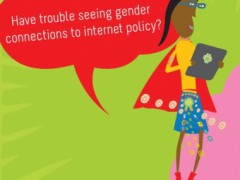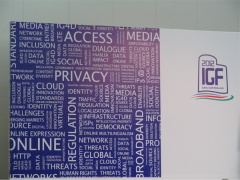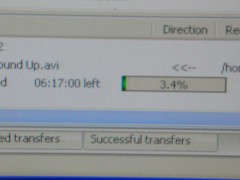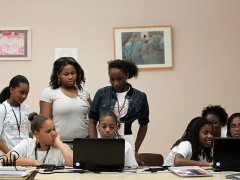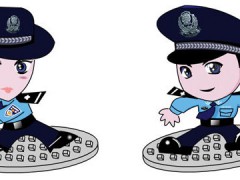Defending the Global Village
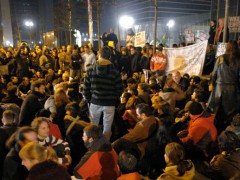
 We live in a global village. Give a man a laptop and an internet connection – or even a cell phone and a decent signal – and he can become a global villager, fully engaged with a world that has turned to technology to facilitate everything from business and politics to celebrity gossip. The global village is a place where we can come together regardless of time and distance. It’s a place that offers safety, equality and open discussion. In short, it’s a place that simply does not exist.
We live in a global village. Give a man a laptop and an internet connection – or even a cell phone and a decent signal – and he can become a global villager, fully engaged with a world that has turned to technology to facilitate everything from business and politics to celebrity gossip. The global village is a place where we can come together regardless of time and distance. It’s a place that offers safety, equality and open discussion. In short, it’s a place that simply does not exist.
Information and communications technology (ICT) has become a key weapon for actors on both sides of the war for the world’s freedoms. It’s used by governments and private citizens, criminals and terrorists, and it’s blurring the lines between these groups.
Whether it’s the role played by Twitter and YouTube in the various uprisings of the Arab Spring, or the widely reported use of BlackBerry Messenger by rioters last summer in the UK, simple technologies have made very different groups with very different aims very effective. Such simple consumer technologies will decide the shape of our futures, forcing the development of new governance at national and international levels in an attempt to rationalize the relationship between connectivity and security. The question is, to what extent should those laws respect the freedom of lawful users while restricting criminality?
Criminal intent
The Mumbai attacks of 2008 showed a chilling application of ICT by those seeking to cause maximum disruption. A hundred and sixty-six people died in the meticulously planned operation, which saw the terrorists using VOIP technology to communicate because they knew the Indian intelligence agencies wouldn’t be able to listen in on their plans. Payments for VOIP credit from Italy and Pakistan and handsets bought in Spain and the USA made it even harder for the authorities to trace the group.
If basic consumer ICT can enable such vicious attacks, the world clearly needs a staunch form of defense. But that’s easier said than done – the time frame needed to trace IPs and the continuous change of IP handling around the world makes interception virtually impossible in real time. Clearly, nobody would suggest that VOIP technology should be withdrawn from public consumption as a result of this terrible misuse, but it’s equally evident that the international community must do everything in its power to prevent VOIP from being used in such a way again.
A similar problem is seen in Latin America, where cyber crime is thought to cost banks an incredible $93m a year. A recent study by Pyramid Research estimates that 18 million people in Latin America bank via their mobile devices, presenting a large and potentially lucrative target for criminals. By writing complex algorithms, hackers are able to fool the software designed to detect malware, and gain access to a victim’s account. The code is commonly embedded in image files, and when the image is opened, a Trojan is installed that captures data from online financial transactions. Brazil and Mexico are the countries worst affected by this criminal use of ICT, but the entire Latin American region currently lacks a proper cyber security infrastructure.
With so many people using mobile banking, this failure is akin to Latin American countries not having a police force to stop robbers from holding up banks. The modern bank robbers don’t need guns and getaway cars, and victims often don’t even realize they’ve been robbed until days later, but in essence the crime is the same. It’s therefore essential that banks and governments in the region work to improve their security measures, bringing them up to standards that will not only deter criminals, but also bring them to justice. The problem for law enforcers is that as hard as they work to improve standards, the criminals will apply themselves just as assiduously to stay one step ahead.
What price freedom?
It’s this flexibility and adaptability that makes ICT such a powerful tool for both sides of the divide. It’s tempting to call for greater restriction of the technology – after all, if terrorists can benefit from the openness of VOIP technology, why not restrict that openness? If criminals can take advantage of mobile banking services to steal millions of dollars, why not close those services down?
The answer is that while the losses enabled by ICT are deeply regrettable, they pale in comparison to the benefits brought by the technology. And of course, it’s not always as simple as the criminals on one side and the forces of good on the other. Wikileaks, envisioned by its founder as an ‘open-source, democratic intelligence agency,’ has been using the power of not-quite-anonymous distributed technology to become a hub for the collection and distribution of sensitive government and business information. Its 2010 leak of more than 250,000 classified cables gave the world inside information on the United States’ secret work in areas like nuclear disarmament, the war on terror, global intelligence and counterintelligence efforts, and diplomatic negotiations.
The leak led to a broader distribution of the truth, which should not be the sole preserve of a privileged few. If knowledge makes us aware, enabling us to raise our voices against injustice, so secrecy helps to manipulate public opinion and leads to the public voice being excluded from decisions that profoundly affect citizens. But the US government argued that the release of so much classified information directly contributed to the risk to US soldiers, and caused a deterioration in international relations.
National and international policy will be slow to catch up to organizations like Wikileaks. Any policy that is implemented will have to negotiate major hurdles and engage with the debate of whether ‘puncturing the power group’ justifies the terrible risk of putting a country or a person under threat. At root, it is a question of ethics and morality. Does our desire to have open information make our global village more vulnerable or more safe?
The answer is that it probably does add to our vulnerability. But that vulnerability is a price worth paying for the sort of world we want to live in. We began by acknowledging that the global village is a fiction precisely because of its cozy image of safety and security. The world is not always as safe as we would like it to be, and the abuse of information technology has to be controlled as far as is possible. But that control must not come at the expense of our freedom.
Image © Osvaldo Gago
Tags: Cybercrime, ICT, Terrorism


